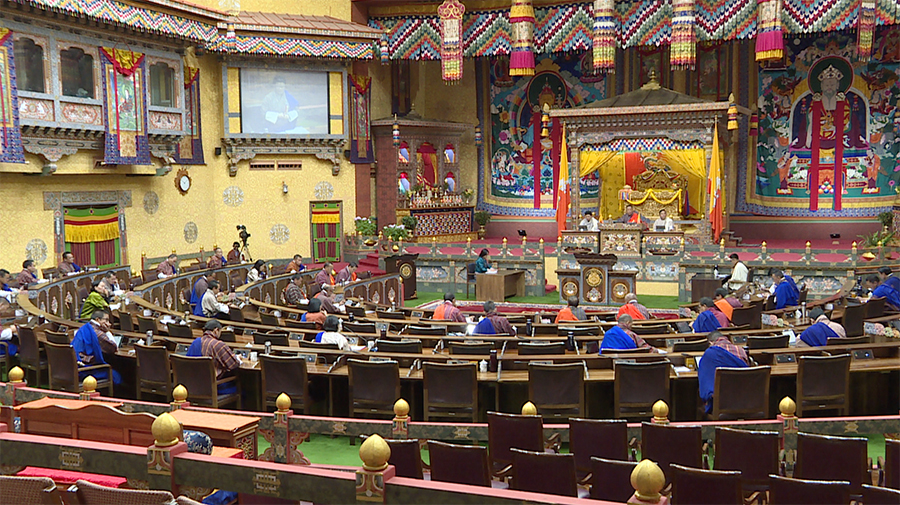
Has the government lived up to its promise of narrowing the gap between the haves and have-nots, the rich and the poor? This was one of the questions raised during the question hour session of the National Assembly today. Narrowing the Gap is Druk Nyamrup Tshogpa’s party slogan and their overarching goal according to the party’s 2018 manifesto.
While presenting her question, Khar-Yurung Member of Parliament Tshering Choden stated that the country’s situation has in fact worsened.
“The third government’s main aim and vision was to narrow the gap between the rich and the poor. However, if we look at the situation of our country, forget about narrowing the gap; the rich are not able to get a profit and the poor are struggling to sustain their living.”
Responding to the question, Prime Minister Dr Lotay Tshering cited examples of projects which he stated has helped bridge the gap.
“If the government cannot support poor ones, the gap will increase further. When we say poor, it is the people in the rural place. Out of many examples, let me cite an example of the ICTization of schools. In rural places, students are given computers to play games and study. Similarly the coding, rural places are accessible to code monkeys to study coding. If somehow we are not able to integrate such things, the gap will widen through it. The rich people will give their children such facilities. The people in the rural place will stay oblivious to it.”
He added health facilities and services which have been improved across the country is another achievement that has helped narrow the gap of inequality.
“In the health sector too, we have added 5 expert surgeons in 8 places. The CT scan facility can be availed in five places now. BHU or Basic Health Unit, now called as ten bedded hospital, has also been established with quality infrastructure.”
During the launch of its “Narrowing the Gap” slogan in 2018, the DNT shared that “gap” explicitly implies to income gap or inequality among different sections of Bhutanese society. To do this, the party had said it would adopt two broad approaches-provide equal opportunities for all and develop and implement policies that are favourable to lower and middle-income groups.
Sonam Yuden
Edited by Yeshi Gyaltshen










